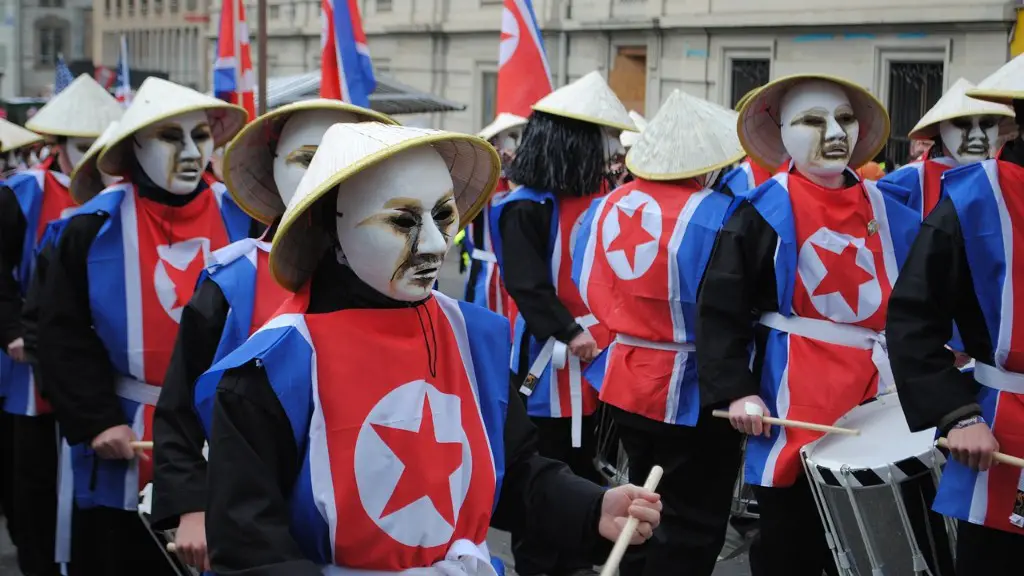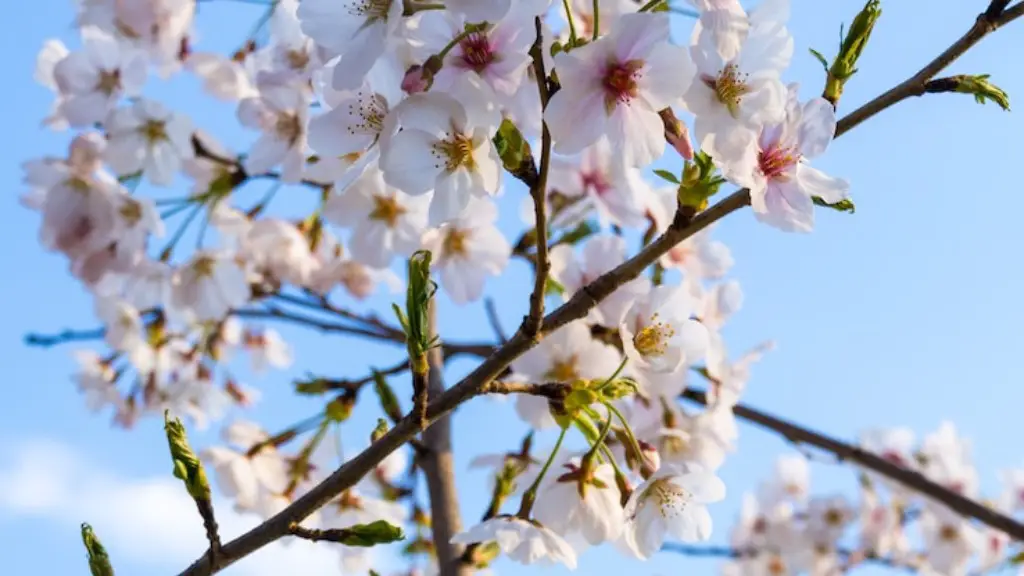North Korea is a country located in East Asia that is known for its authoritarian government and largely closed-off society. The country is also known for its controversial nuclear weapons testing and for the international community’s collective response, including a variety of sanctions. North Korea is one of the most interesting and mysterious countries in the world that provides a unique lens for looking at modern authoritarianism.
North Korea officially the Democratic People’s Republic of Korea, is a single-party state led by the ruling Korean Workers’ Party since 1948. This is a stark contrast to other countries in the region such as South Korea, Japan and China, who have embraced democratic and free-market systems. One of the most unique features of North Korea’s system of government is its strong emphasis on a personality cult surrounding the Kim family, which currently continues with the current leader, Kim Jong-Un.
The country’s economy is also unique in the world. It is considered a centrally planned economy, meaning that government officials direct investment and production decisions. Unlike most other countries, North Korea lacks a thriving private sector. This means that people are restricted in their ability to purchase goods or services, and ultimately their quality of life is low. With that being said, the North Korean government spends substantial resources on the military and on the country’s nuclear weapons program.
The government of North Korea is also known for its extreme censorship. All forms of media, from television and radio to books and newspapers, are heavily censored. It is estimated that North Korea has the most censorship in the world, with citizens only being allowed to watch state-run television channels and listen to state-run radio stations. This means the North Korean people’s access to information about the outside world is restricted.
The isolation of North Korea’s economy and government has been further compounded by international sanctions that were initially imposed in the early 2000s in response to the country’s nuclear weapons program. These sanctions limit North Korea’s access to the international banking system as well as certain exports and imports. It is clear that these sanctions have had a significant impact on the North Korean economy, its people’s standard of living, and the government’s ability to acquire resources.
History
North Korea has an incredibly complex and fascinating history that is deeply intertwined with its geographical position in East Asia. Much of its history can be seen as a response to foreign influence and control. As a result, North Korea has a long-standing hostility towards the United States and its allies. In the early 1950s, North Korea invaded its neighbor South Korea, leading to a three-year long bloody conflict. This war was known as the Korean War, and it cemented North Korea’s stance on the world stage as a belligerent and authoritarian state.
After this war, North Korea maintained its isolationist stance and closed itself off from the rest of the world. Throughout the Cold War era, North Korea was a close ally of the Soviet Union and China. Despite North Korea’s adherence to Soviet-style Marxism-Leninism, the country’s government maintained its authoritarianism with the state utilizing a variety of oppressive tactics. This included purges of “subversive” elements within society as well as policies that limited travel and immigration to and from North Korea.
In the 1990s, North Korea experienced a period of economic decline as it dealt with the collapse of the Soviet Union and its associated financial and material support. This led to a large famine that resulted in the deaths of an estimated 2–3 million people. In the 2000s, the country began to gain notoriety due to its nuclear weapons program, which was seen by many as a major threat to international peace and security.
Political System
North Korea’s political system is one of the most authoritarian and repressive in the world. The country is a single-party state, with the Korean Workers’ Party led by the Kim dynasty as the ruling power. This system has been in place since the country’s independence in 1948. The government apparatus controls all aspects of life, from the economy and politics to the media and everyday citizen behavior. All aspects of life in North Korea are rigidly controlled and monitored, with even minor deviations from the state-mandated rules harshly punished.
The state’s control is also heavily felt in the media, with censorship and propaganda being the two main tools used to control the population. All information the citizens of North Korea get is highly regulated, with access to anything deemed to be subversive strictly prohibited. There is also a focus on spreading the state-sanctioned ideology, with stories of Kim Il-sung and Kim Jong-il often used to promote loyalty and patriotism.
The North Korean government also places emphasis on maintaining an extremely secretive society. The country’s border with South Korea is heavily guarded, with movement in and out of the country strictly controlled. Foreign journalists are also prohibited from traveling to the country, making it almost impossible to get a clear picture of what life is like inside North Korea.
The North Korean government also has an extensive network of prisons and labor camps in which political prisoners and dissidents are held. Human rights abuses in North Korea are considered to be among the worst in the world, and include execution, torture, and forced labor.
Culture
Culturally, North Korea is unique in its traditional values and customs. The country has preserved many of its traditional folk customs, such as dance and music, as well as traditional ceremonies and festivals. North Korea is also known for its love of pageantry and military parades, which often feature giant statues of the country’s two leaders.
North Korea is also a highly religious nation, with the main religion being Korean Shamanism, which is based on ancestor worship and animism. This religion is often blended with Confucianism and Buddhism to create a unique set of beliefs and practices. The country also has a heavily Confucian culture, which emphasizes Confucian values like hierarchy, respect for elders and authority, and filial piety.
In terms of cuisine, North Korea is known for its distinctive flavors and dishes. Its cuisine is a blend of Chinese, Japanese, and Korean influences, with Kimchi being the national dish. North Korea is also home to a variety of local beverages, including soju, an alcoholic beverage made from rice that is often consumed as part of meals.
Relations with World
Given North Korea’s heavily isolated stance, the country has few diplomatic ties with the outside world. North Korea has particularly acrimonious relationships with its neighbors, namely South Korea with which it is still technically at war, and Japan, with which it has a contentious history. North Korea also has a tenuous relationship with the United States and its allies, with the US responding to the country’s nuclear weapons program through sanctions and issuing warnings. It is clear that while North Korea is willing to engage with the outside world, it is hesitant to make any concessions.
North Korea has also sought to open up to the world in recent years, though it has mainly done so in an effort to improve economic ties and access foreign capital. This began with the establishment of the Kaesong Industrial Zone in north western North Korea in 2004, which was intended to be a collaborative economic development effort between North and South Korea. This effort has since seen moderate success, though local labor conditions and wages remain well below international standards.
In more recent years, North Korea has also sought to improve diplomatic relations with other countries. This began in 2018 with North Korea engaging in a brief yet highly publicized diplomatic process with the United States, South Korea, and other countries. Despite North Korea publicly affirming its commitment to denuclearizing, this process has seen far from successful, as progress has stalled and tensions between the countries have since returned to previous levels.
Youth
Given the North Korean government’s emphasis on secrecy and control, the lives of the country’s youth are heavily regulated. Education is mandatory and tightly controlled, with the state-approved curriculum only allowing a narrow approach to learning and leaving out any topics related to the outside world. This can create a disconnect between the younger generations and the outside world, as youth often grow up not knowing how other countries operate.
Access to technological advancements has also been very limited in North Korea, with the internet and other forms of media heavily censored. With that being said, there has been a recent embrace of technological advances within the country, with the government expanding access to basic internet services such as email and messaging, albeit in heavily monitored and censored fashion. This indicates that the North Korean government might be slowly easing its stance, though the extent to which this will benefit the lives of the North Korean citizens remains to be seen.
Tourism
In recent years, North Korea has slowly opened up to the world in select areas, with one of the most notable being tourism. North Korea has become a popular tourist destination for visitors from around the world, drawn to the country’s unique culture and strangeness. Tourists are largely restricted to the Pyongyang area, where they can visit state-run monuments, museums, and restaurants. Visits to other parts of the country are heavily regulated and often require permission from the government.
Despite this tight control on tourist access, the number of visitors to North Korea has been steadily increasing in recent years. This has brought in much-needed hard currency to the country and has served as a source of cultural exchange. However, as with all aspects of North Korean society, it is important to note that tourism in North Korea is tightly regulated and that tourists should bear in mind the restrictions, limitations, and risks imposed by the North Korean government.
Conclusion
North Korea is a unique and mysterious country that provides a fascinating lens for looking at authoritarianism in the modern world. The country is heavily isolated and secretive, with the government imposing tight control on all aspects of life from the economy and media to tourism and travel. Culture and history also play an important role in North Korea, with the country maintaining its traditional values and customs as well as its political ideology. Owing to its level of isolation and sparse contact with the outside world, North Korea remains an extremely fascinating subject, and it certainly merits further investigation.





